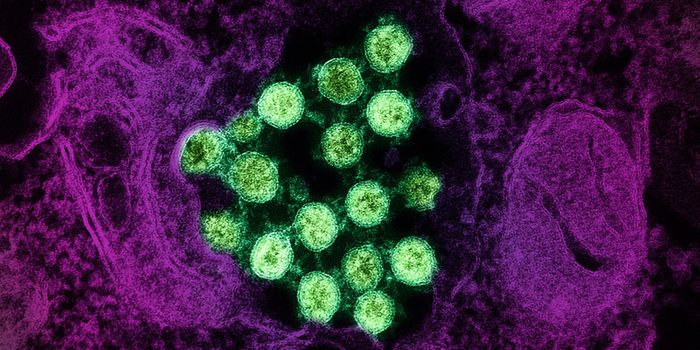A team of researchers at the University of California San Diego School of Medicine were interested in decoding the way Zika virus alters the host’s immune system. Mainly, Zika virus is known to target macrophages. Macrophages are the cells that are responsible for shielding the host from bacterial and viral invaders. The study centered on the deactivation of macrophage genes.
Zika virus is a virus that transmits via mosquito bites. The virus can also spread from an infected pregnant woman to her fetus. Sexual intercourse is another transmission route for the infection, as well as possibly blood transfusions. Symptoms of the virus may include fever, rash, headaches, joint pain, red eyes, and muscle pain. Though many may become infected with Zika virus, they often do not get sick enough to visit the hospital. So, the real threat comes to the fetus. During pregnancy, the infection can cause the fetus to experience birth defects such as microcephaly, or even result in the death of the fetus.
The researchers at UC San Diego were able to identify infected cells and segregate them from uninfected cells. This method allowed the team to look at only the infected cells, whereas previous methods did not utilize the practice of segregation. Side by side comparison of infected cells transcriptomic and epigenetic features tell a story of proviral and antiviral evolution. Carlin states that “If your goal is to see what a virus is doing to a cell, you need to focus on only infected cells to get a true representation.”
When observing the Zika infected cells and comparing them to the uninfected cells, the results proved astonishing. The genes within the infected cells deactivated. Carlin and team are eager to explore if the mechanisms that disable the transcription in Zika infected macrophages play a role in the development of neurons, the cells that make up the brain.
The work performed by the researchers has allowed them to conclude that the effects of the Zika virus are entirely due to the infection and not due to the environment in which the cell resides or the immune response the host is experiencing.
Christopher K. Glass, MD, PhD, professor in the departments of Medicine and Cellular and Molecular Medicine at UC San Diego School of Medicine said "We were surprised at just how different infected and uninfected cells looked, in terms of the genes they had turned on or off, even two cells next to each other."
Notably, the study had provided insight into the genes the macrophages utilize specifically to combat the Zika viral infection as well as the more generic genes involved in transcription.
The researchers are eager to share their cell segregating techniques with future studies so that others can unmask new insights into unanswered questions.
Sources: CDC, UC San Diego Health, PNAS
-
MAY 07, 2024Is It Anti-RNP or Anti-Sm/RNP?
- See More
-
APR 30, 2024Immuno-Oncology Virtual Event Series 2024
-
MAY 07, 20243rd International Biosecurity Virtual Symposium
-
JUN 06, 2024The Future of Scientific Conferencing
- See More


















































